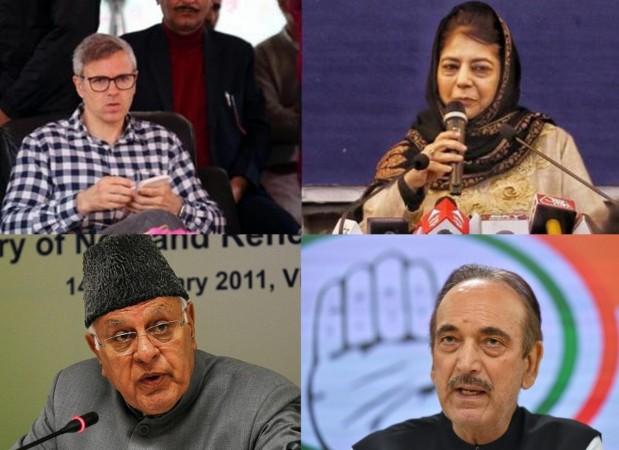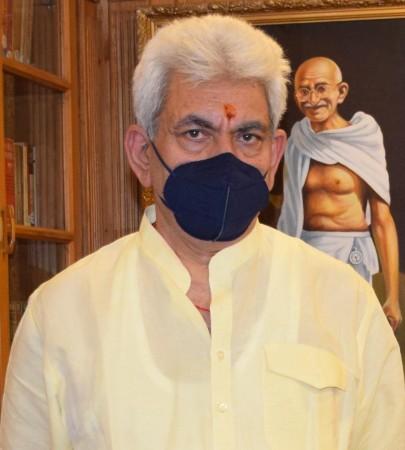The Jammu and Kashmir government has decided to withdraw the elite special security group (SSG) cover to four former chief ministers of the state and their immediate family members.
These former cief ministers are - Dr Farooq Abdullah, Ghulam Nabi Azad, Mehbooba Mufti and Omar Abdullah.
The decision was taken after a security review meeting headed by J&K Lt governor Manoj Sinha held recently that the former chief ministers and their immediate family members did not need elite group protection since the normal security wing of the local police, augmented by the close protection team (CPT) drawn from the SSG, would be enough.

The SSG created by an Act of the state legislature in 2000 cannot be wound up as such since that would need a legislation by the Parliament because in the J&K Reorganisation Act 2019 it was decided to dispense with SSG cover to former chief ministers, but not the disbanding of the SSG.
The proposal that the downsized SSG should be headed by an officer below the rank of a superintendent of police, has administrative complications, as per administrative sources.
"To address the administrative hiccup, the decision needs to be reviewed, but the government is firm on withdrawal of the elite cover to former chief ministers.
"Once implemented, men, bullet proof vehicles and technical equipment would be shifted from the SSG to the local security wing that would in turn protect the former chief ministers.
"Of these, two including Dr Farooq Abdullah and Ghulam Nabi Azad are having National Security Guard (NSG) cover in addition to the SSG protection. In their case, the SSG component would be replaced by the component provided by the local security wing while their NSG cover remains unchanged.
SSG security for former CMs
In case of Omar Abdullah and Mehbooba Mufti, the other two former chief ministers protected by the SSG, the protective responsibility will be shifted from the SSG to the local security wing.

One ground impact of the withdrawal of SSG cover to four former chief ministers would be that their immediate family members will lose the elite group protection.
The SSG would administratively remain downsized, but legally intact since it would in future have to protect the chief minister when an elected government takes office in J&K.
One big reason that the organisation is being downsized, but not disbanded is that an elected chief minister would be in office most probably this year since the delimitation commission is likely to submit its final recommendations by the end of March 2022.
After the delimitation process is complete, constitutionally the assembly elections will have to be held, which would give J&K its first elected government as a union territory.
(With inputs from IANS)













